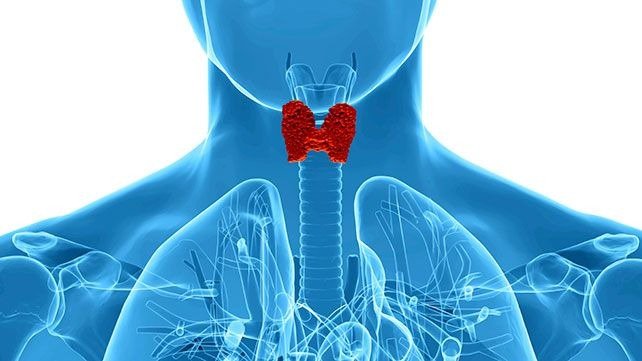Thyroid Profile Test: Understanding Its Importance and Procedure
A thyroid profile test is a crucial diagnostic tool used to evaluate the function of the thyroid gland, which plays a vital role in regulating various bodily processes like metabolism, heart rate, and body temperature. The test measures the levels of different thyroid hormones in the blood, helping to diagnose disorders such as hypothyroidism (underactive thyroid) or hyperthyroidism (overactive thyroid).
Why is the Thyroid Profile Test Important?
The thyroid gland produces hormones that are essential for maintaining overall health. A thyroid profile test helps detect imbalances in these hormones, which can lead to:
- Unexplained Weight Changes: Sudden weight gain or loss can be a sign of thyroid dysfunction.
- Energy Levels and Fatigue: Thyroid disorders can cause extreme tiredness, lack of energy, or hyperactivity.
- Mood and Mental Health: Depression, anxiety, and irritability are often linked to thyroid problems.
- Heart Health: Abnormal thyroid hormone levels can lead to issues like palpitations or changes in heart rate.
- Hair and Skin Health: Brittle hair, hair loss, and dry skin can also be indicators of thyroid imbalances.
Regular thyroid testing is important for early detection and treatment of these conditions.
Types of Thyroid Profile Tests
A thyroid profile test typically includes the following key tests:
- TSH (Thyroid Stimulating Hormone) Test: This test measures the amount of TSH in your blood. High levels indicate hypothyroidism, while low levels suggest hyperthyroidism.
- T3 (Triiodothyronine) Test: T3 is one of the hormones produced by the thyroid gland. Elevated T3 levels are often associated with hyperthyroidism.
- T4 (Thyroxine) Test: T4 is another key thyroid hormone. Both high and low levels can signal thyroid dysfunction.
- Free T3 and Free T4: These tests measure the unbound (free) versions of T3 and T4 in the blood, providing a clearer picture of active thyroid hormones.
- Thyroid Antibody Test: In cases where autoimmune thyroid diseases are suspected, testing for thyroid antibodies can help diagnose conditions like Hashimoto’s thyroiditis or Graves’ disease.
Who Should Get a Thyroid Profile Test?
A thyroid profile test is recommended for individuals experiencing:
- Unexplained weight gain or loss
- Fatigue or sleep disturbances
- Mood swings, depression, or anxiety
- Difficulty concentrating or memory problems
- Cold intolerance or excessive sweating
- Irregular heartbeats or palpitations
- Hair thinning or skin changes
Additionally, people with a family history of thyroid disorders, pregnant women, and women over 60 are at higher risk for thyroid issues and should consider regular testing.
How is the Thyroid Profile Test Performed?
The thyroid profile test is a simple blood test that measures hormone levels in the bloodstream. Here’s the process:
- A healthcare provider will clean the area around a vein in your arm.
- A small needle will be used to draw blood.
- The blood sample will be sent to a lab for analysis.
Results are typically available within a few days, depending on the lab.
Interpreting Thyroid Profile Test Results
- Normal TSH Levels: For most adults, normal TSH levels range between 0.4 to 4.0 milli-international units per liter (mIU/L).
- Hypothyroidism: High TSH levels with low T4 or T3 levels indicate hypothyroidism. Common symptoms include weight gain, fatigue, and cold intolerance.
- Hyperthyroidism: Low TSH levels with elevated T4 or T3 levels indicate hyperthyroidism, which is associated with symptoms like weight loss, anxiety, and rapid heart rate.
- Subclinical Hypothyroidism: Slightly elevated TSH levels with normal T3 and T4 levels may suggest early-stage hypothyroidism that requires monitoring.
Your healthcare provider will interpret your results and, if necessary, suggest treatment options.
Treatment Options for Thyroid Disorders
- Hypothyroidism: The standard treatment is thyroid hormone replacement therapy, typically using synthetic T4 (levothyroxine) to restore normal hormone levels.
- Hyperthyroidism: Treatment options may include antithyroid medications, radioactive iodine therapy, or surgery in severe cases to reduce thyroid hormone production.
- Monitoring: Some mild cases of thyroid dysfunction may only require regular monitoring and lifestyle changes.
Additional Factors to Consider
- Pregnancy: Thyroid function can change during pregnancy, making it crucial for pregnant women to get their thyroid levels checked regularly.
- Medications: Certain medications, like lithium or amiodarone, can affect thyroid function, so it’s important to inform your doctor of any drugs you’re taking.
- Diet: Iodine intake plays a role in thyroid health. Both iodine deficiency and excess iodine can lead to thyroid imbalances.
Conclusion
A thyroid profile test is an essential diagnostic tool for maintaining your thyroid health and overall well-being. It provides valuable insights into your thyroid function, helping detect conditions like hypothyroidism or hyperthyroidism. Early detection through testing allows for effective treatment and can prevent long-term complications. If you’re experiencing any symptoms of thyroid dysfunction, talk to your healthcare provider about getting a thyroid profile test to take control of your health.






